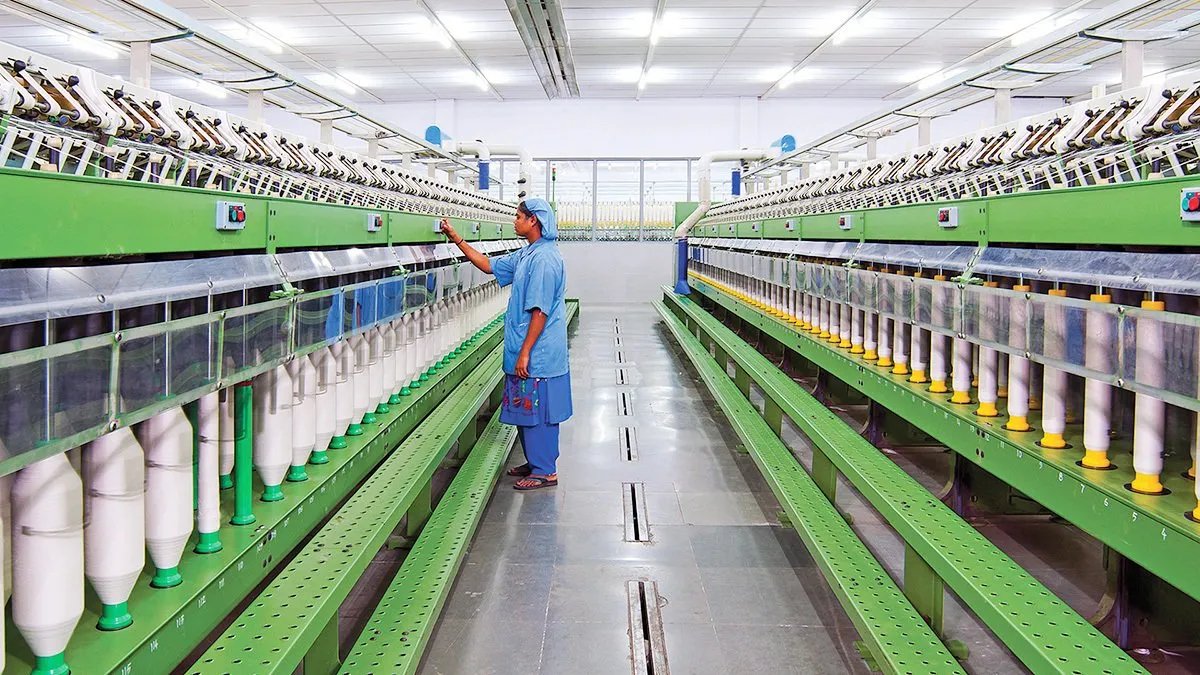Textile & Apparel industry: An emerging paradigm in sustainability norms

03 July 2023, Mumbai
European Parliament Takes Bold Steps; In a decisive move to combat the detrimental effects of the "take, make, dispose" model on the environment, health, and economy, the Environment Committee of the European Parliament has made its stance clear.
Over a year ago, the committee proposed a regulation to establish eco-design requirements for sustainable products, aiming to replace the current focus solely on energy-related products.
Now, with an overwhelming majority of 68 votes in favor, 12 against, and 8 abstentions, the committee has adopted its position on revising the EU's eco-design framework.
New product passports
The adoption of this report in July 2023 will mark a significant milestone in Europe's journey toward a circular economy. The report will provide guidelines for the European Parliament's negotiation roadmap, facilitating directives and dialogues with individual European nations to bring about the necessary legislation.
Members of the European Parliament (MEPs) emphasize the importance of easily accessible and comparable product passports online, enabling consumers to make informed choices. The report also recommends a ban on the destruction of unsold textiles, footwear, and other products, one year after the law's implementation.
Aim to promote transparency and longevity in the fashion industry
Under the new framework, manufacturers will be prohibited from setting product lifetime limits through design features. They will be required to provide software updates, spare parts, and accessories for an appropriate period, ensuring product longevity for the benefit of both the planet and consumers' finances.
Every product should be easily repairable, and repair guidelines must be readily available.
Mandatory product passports will provide transparent, authentic, and updated information, allowing consumers and businesses to make informed decisions, facilitate repairs and recycling, and increase awareness of the environmental impact of their purchases.
Circular Economy Practices Drive Sustainability
In response to the pressing need for ecological responsibility, businesses across various sectors have embraced sustainable supply chain practices, aiming to minimize the unintentional environmental damage caused by manufacturing and purchasing processes.
Alongside this, the concept of circular economies has emerged as a powerful driver of environmental sustainability, emphasizing innovative approaches that harmonize ecosystems with economic growth.
Integrating Ecological Considerations into Supply Chain Management
This paper conducts a systematic literature review, focusing on four key themes: drivers, barriers, practices, and indicators of sustainable performance within the textile and apparel industry's adoption of a circular economy.
While this industry plays a crucial role in employment and economic growth, it has also gained notoriety as one of the most polluting sectors globally. However, positive changes are underway as the industry embraces sustainability norms to reduce its environmental impact and improve working conditions.
Key themes
To achieve these objectives, the textile and apparel industry is implementing new technologies and processes to minimize waste, water usage, and carbon emissions.
Ethical sourcing and fair labor practices are also gaining increased attention. As the industry transitions toward a circular economy model, the focus is on minimizing waste generation and maximizing resource efficiency through strategies like recycling and reusing materials.
Minimizing Environmental Impact
Through the adoption of circular economy practices, the textile and apparel industry demonstrates its commitment to innovation and reshapes its role as a promoter of sustainability.
This transformation is critical not only for mitigating environmental damage but also for ensuring the industry's long-term viability.
By fostering collaboration and prioritizing sustainable performance, the industry paves the way for a future where ecological concerns take center stage in decision-making processes.
Sustainability reporting standards protocol
MEPs also urge the Committee to prioritize specific product groups in its first working plan, including iron, steel, aluminum, textiles (especially garments and footwear), furniture, tires, detergents, paints, lubricants, and chemicals.
Economic operators will be required to report the number and percentage of products discarded, along with the reasons, thereby enabling the Commission to identify products for a potential destruction ban.
Furthermore, the International Sustainability Standards Board (ISSB) has developed global sustainability reporting standards that will become mandatory in various countries from January 1, 2024.
These standards will measure companies' protection against environmental risks and other sustainability issues, including labor practices.
Conscious consumerism gains traction
The rise of sustainability in the fashion industry has been a long time coming. The movement gained momentum after disastrous events, such as the Rana Plaza collapse in Dhaka in 2013, highlighted the harsh realities of the textile and apparel industry.
Consumers became more conscious of the provenance of their garments, and sustainability and ethics-driven consumers emerged.
These consumers understand the impact of climate change and the consequences of a wasteful consumption culture, leading to a shift in the narrative from "fast fashion" to "less is more."
Fashion industry adapts to changing consumer demands
Today, approximately 85% of consumers are aware of their behavior's effect on the planet, with 34% willing to spend more on sustainable and ethical products.
The fashion industry has taken notice, with initiatives like the Horizon program supporting young
European entrepreneurs in building sustainable and ethically sourced businesses.
However, there remains a dilemma for consumers, particularly amidst a recession, as they strive to balance their ethical values with the need to survive rising prices.
The sector embraces innovation for a more sustainable future
While fast fashion continues to dominate the market linking circular economy priorities with social benefits such as fair wages, and good working conditions, augmented by transparency in business practices, may open new business opportunities for the apparel and textile sectors.
Latest Publications

































